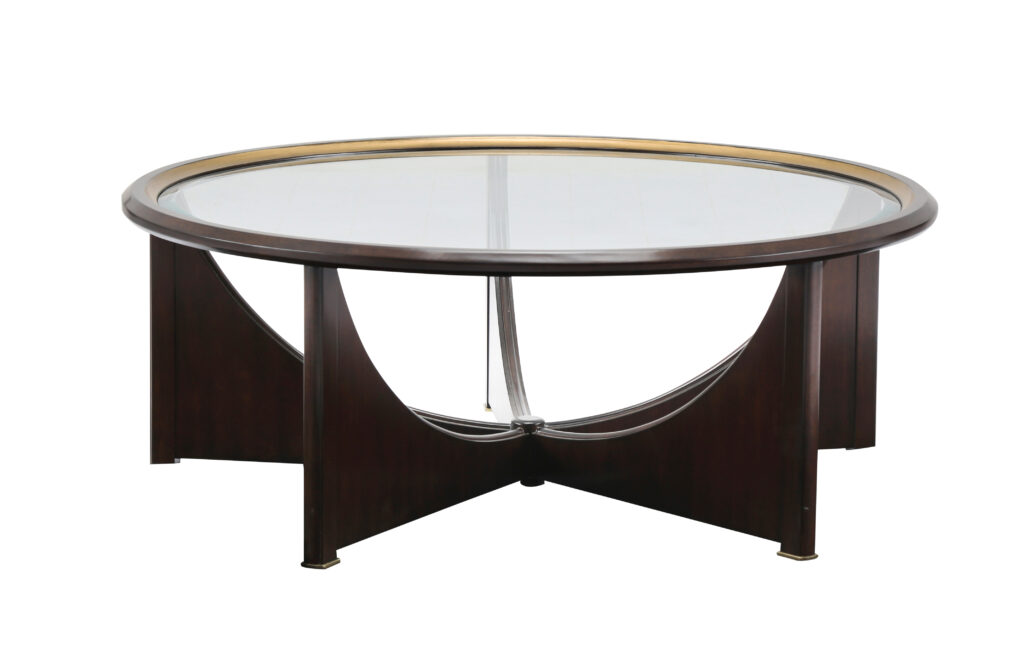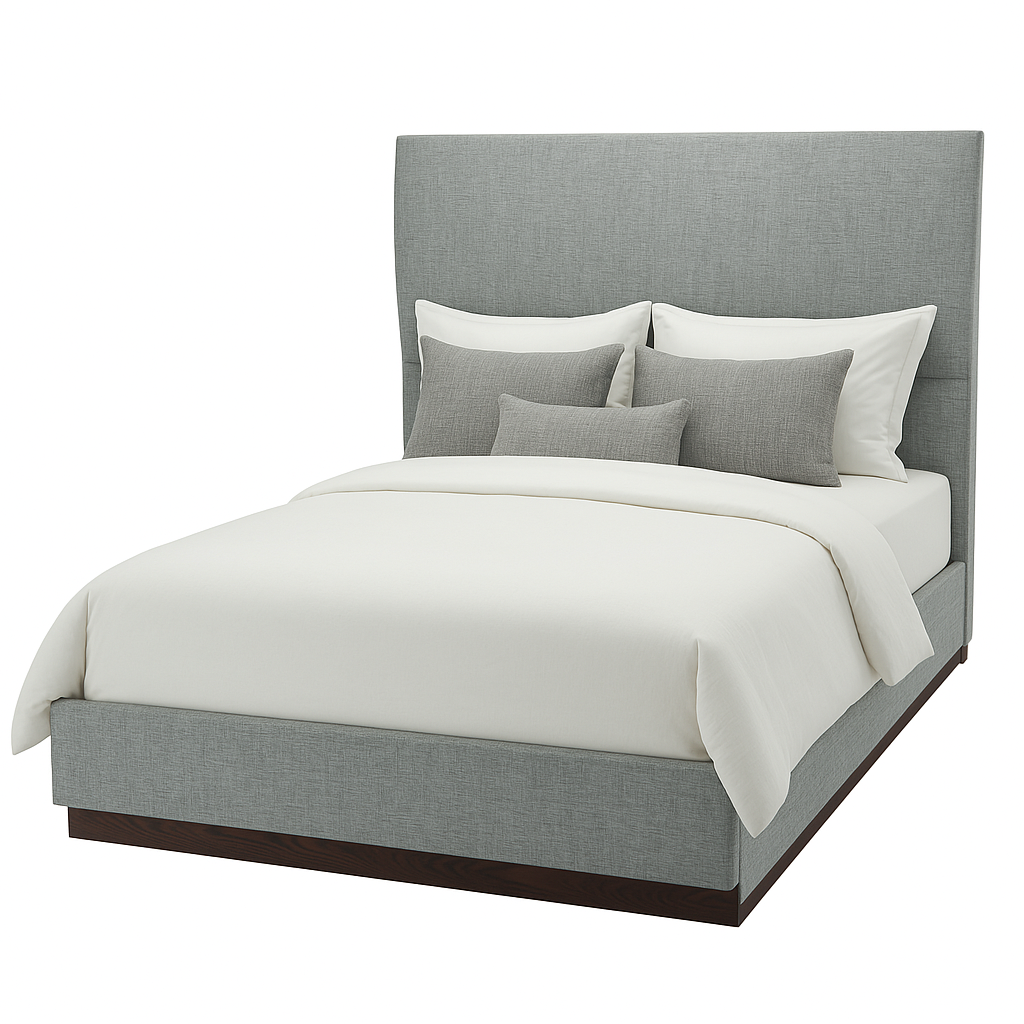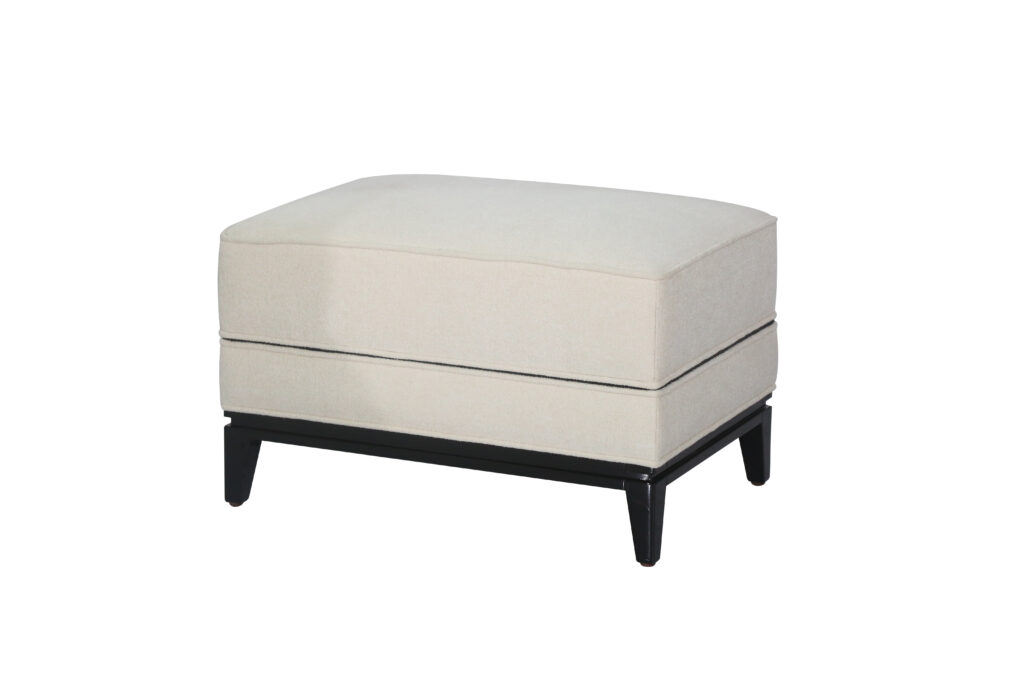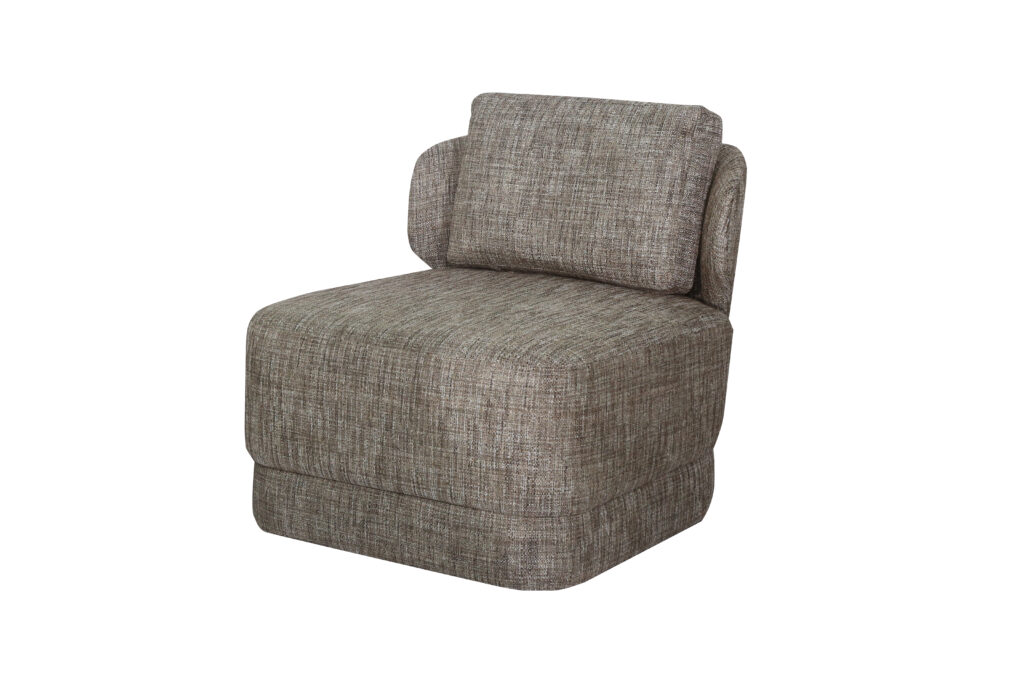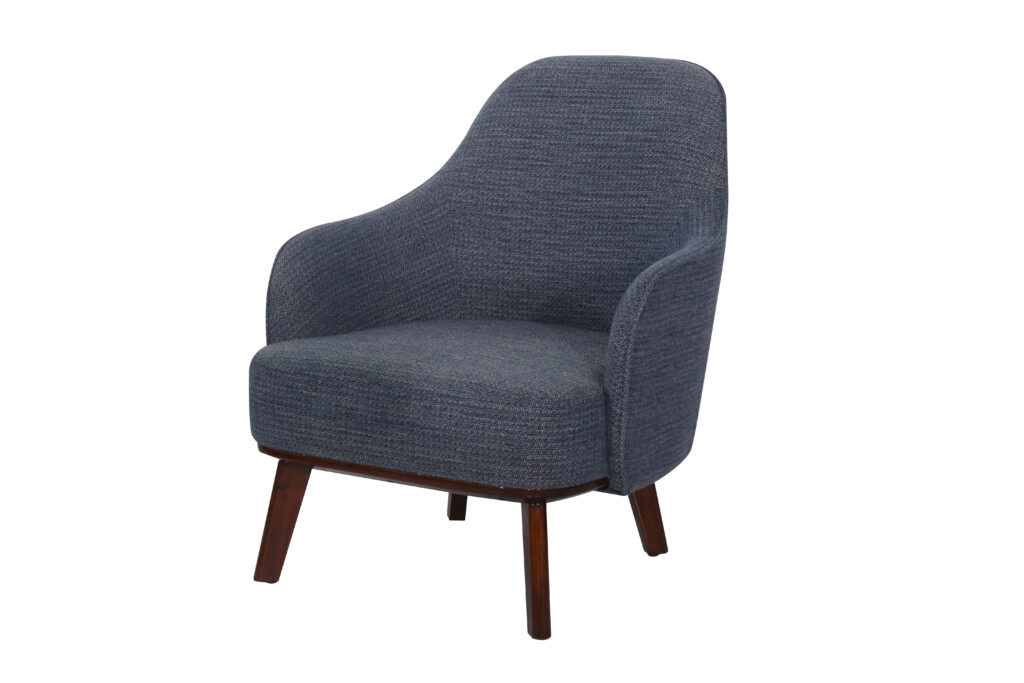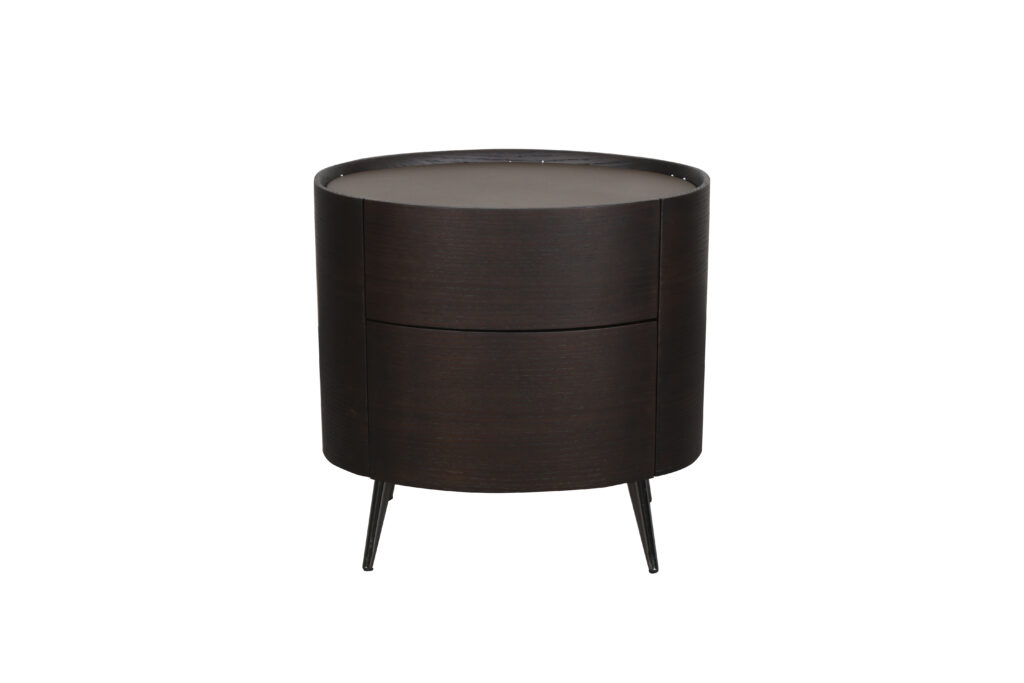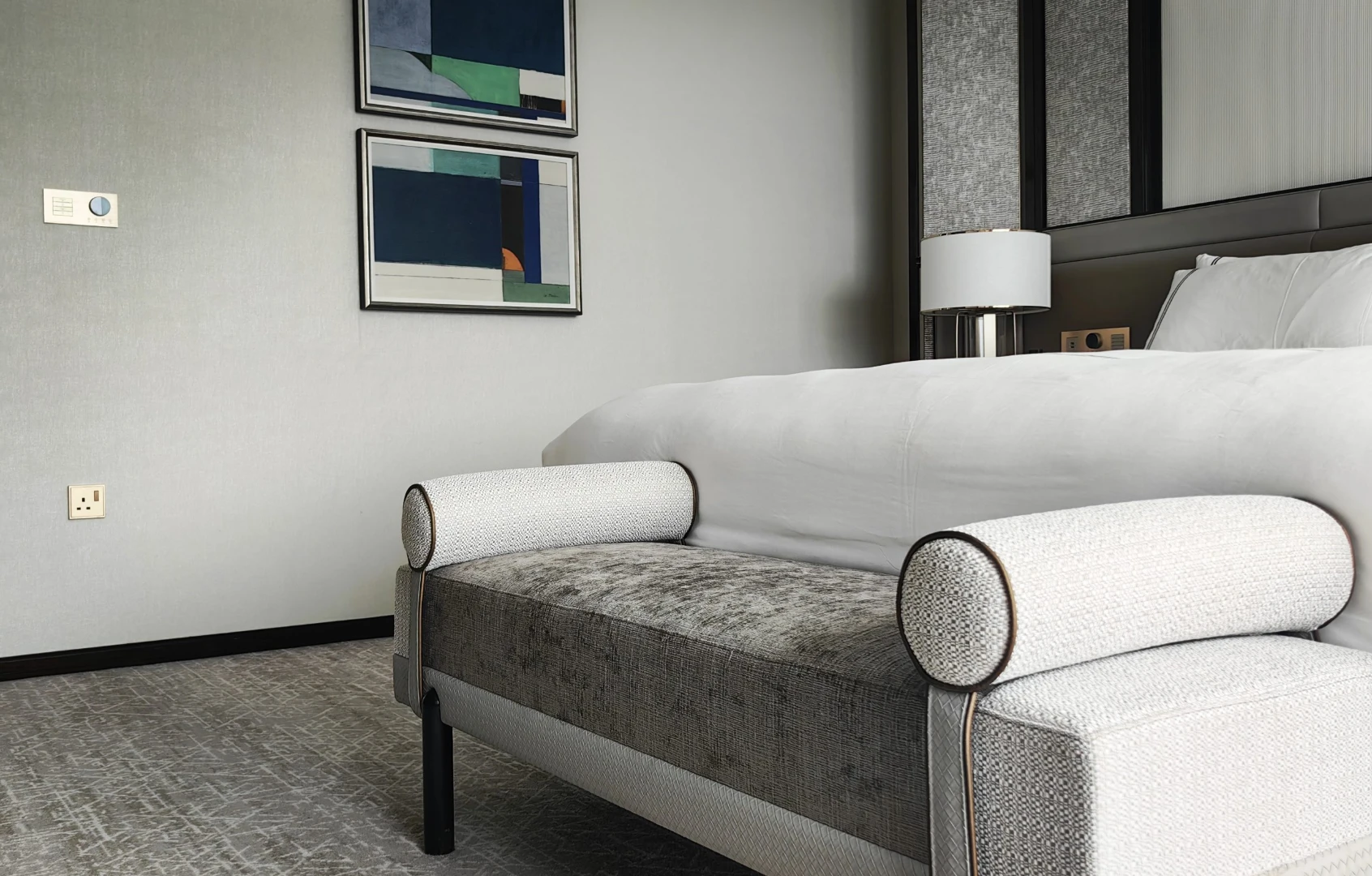
Location
Constantia, Cape Town, Sud Africa
Year
2025/02/10
Business Unit
Malan Vorster Architecture Interior Design
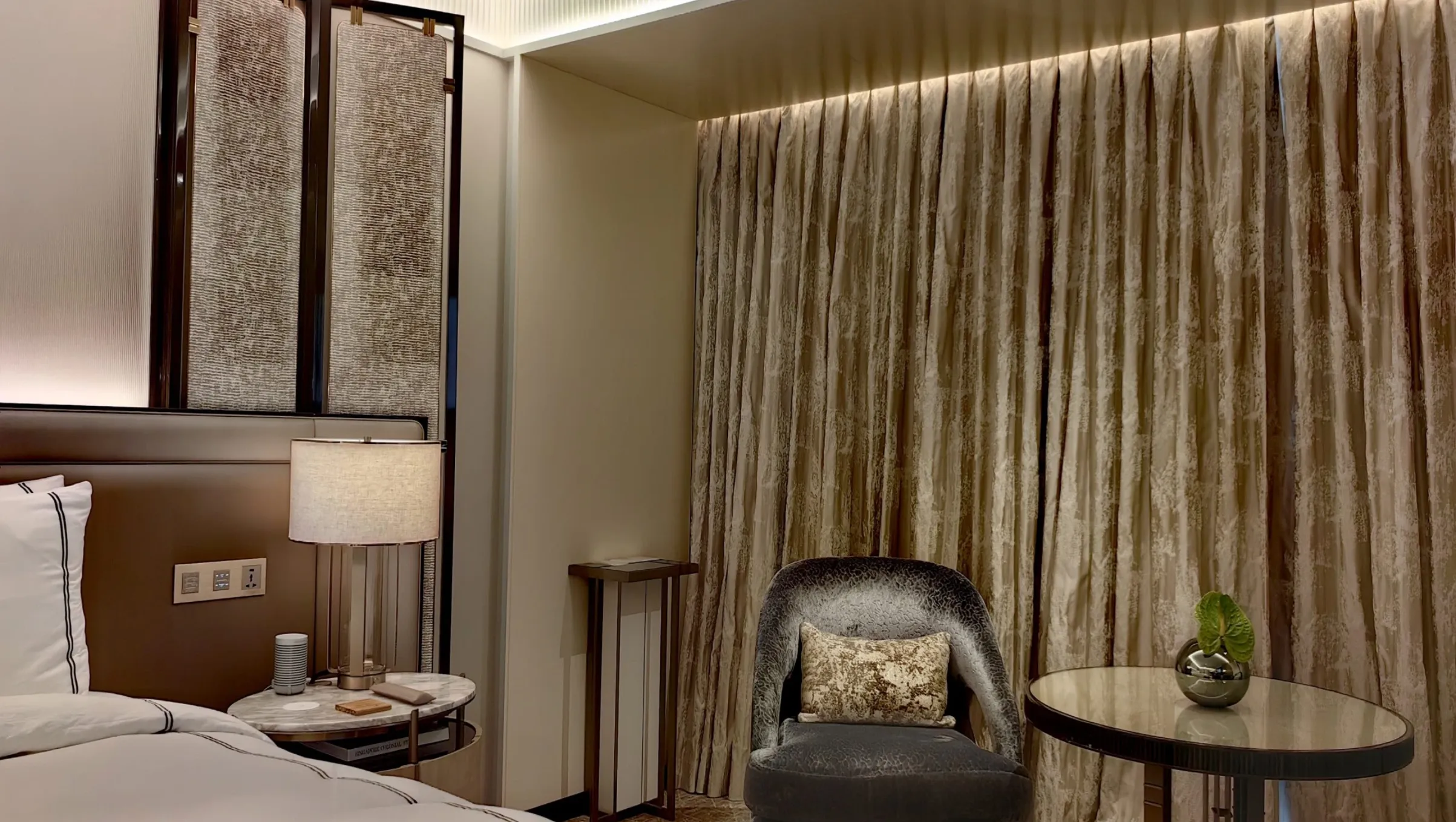
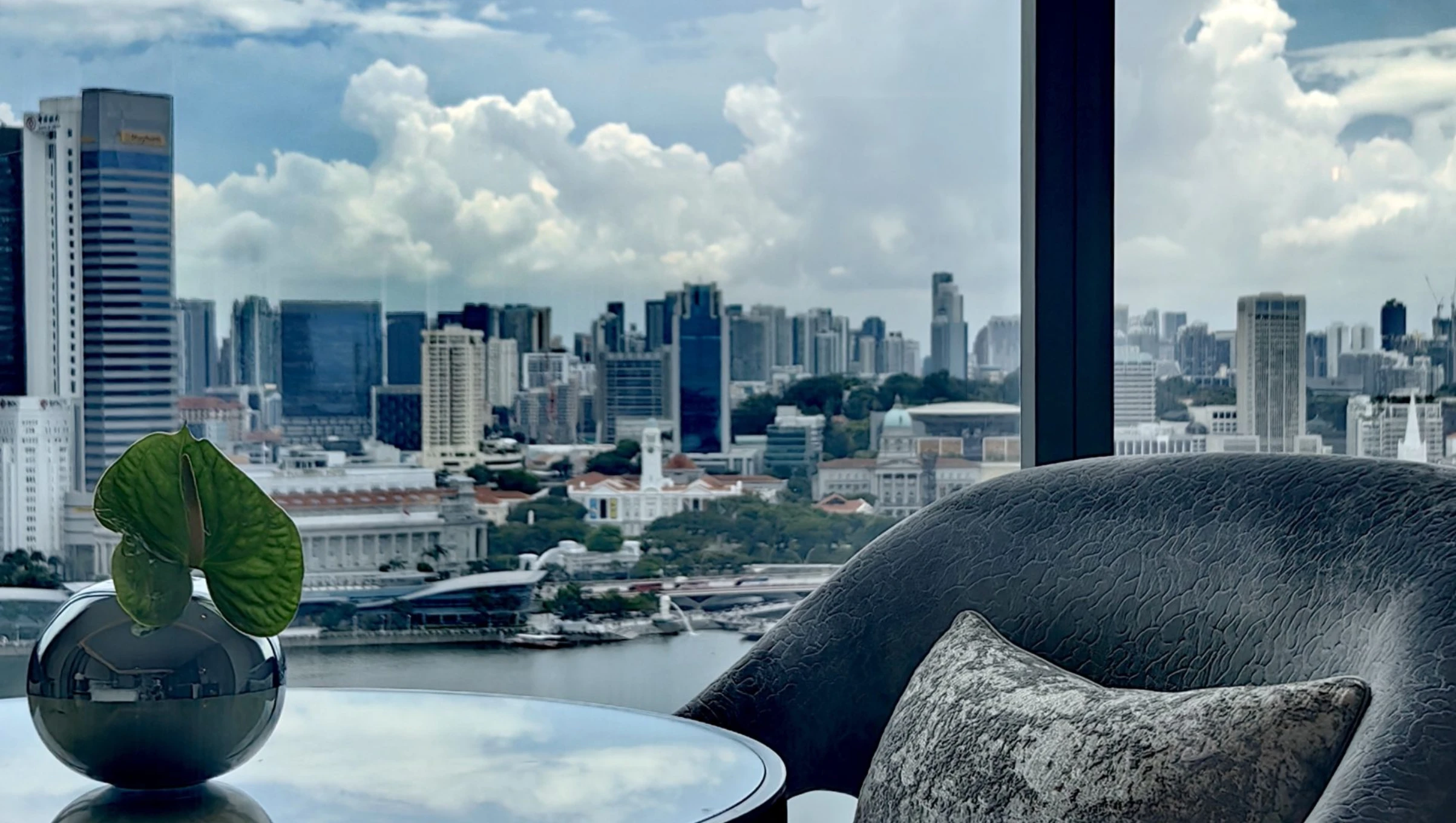
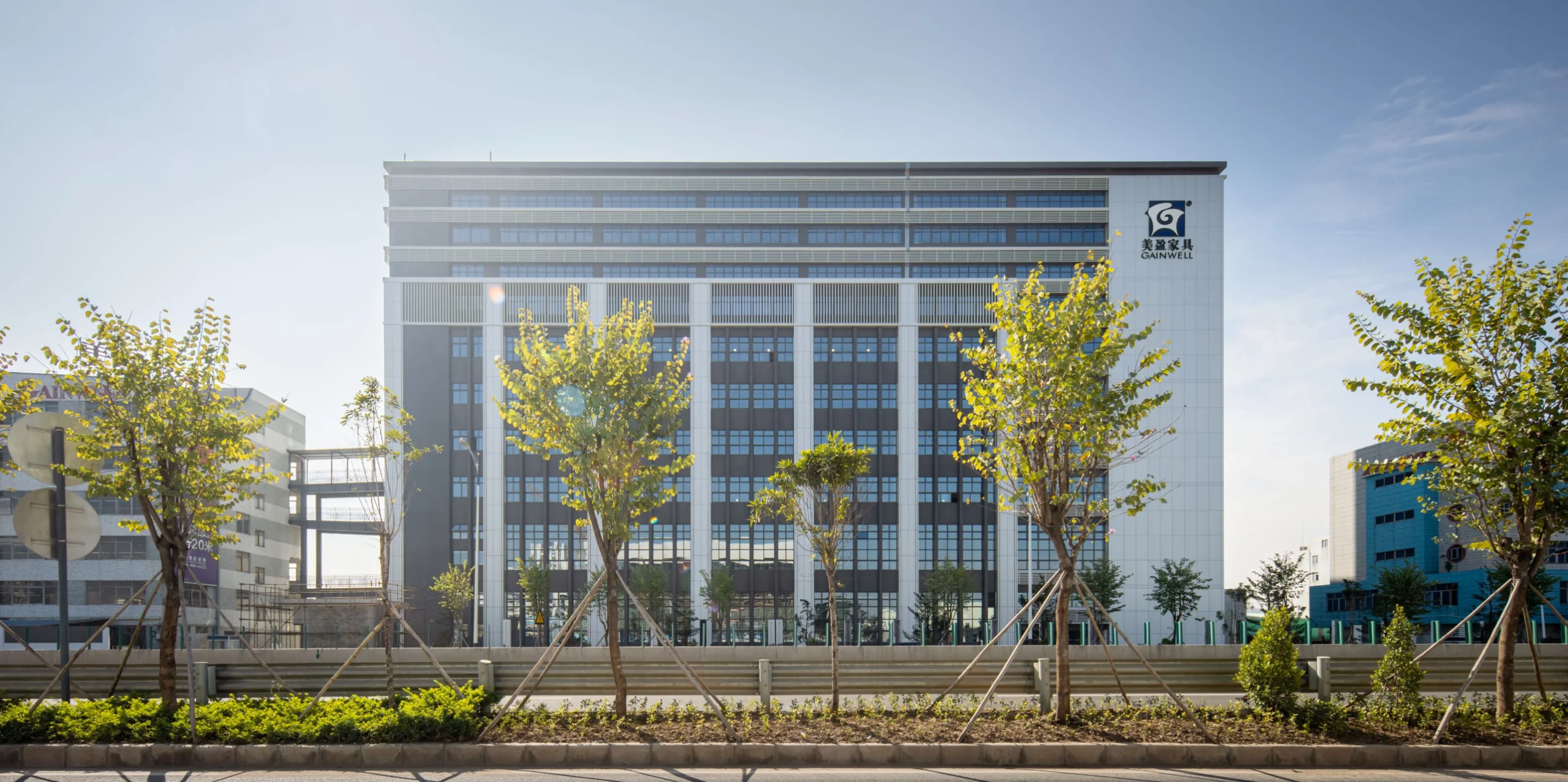
Hotel Room Layout Guide: Optimizing Space and Selecting the Right FF&E
Designing a hotel room isn’t just about how it looks — it’s about how it works, how it feels and how to make the best of limited space. The layout of a hotel room can tremendously impact the experience of all guests, and it should be a well-thought-out process. From a luxury suite to a small city hotel room, the layout creates a noticeable difference for guests as well as those who manage it.
FF&E (Furniture, Fixtures & Equipment) is another essential element of hotel design. FF&E includes the movers that furnish and equip a space — beds, chairs, lighting and beyond. The right FF&E on their own ensure that the hotel environment is cohesive, efficient, and welcoming, but combine this with a well-thought-out overall room layout and you have a winning space on your hands.
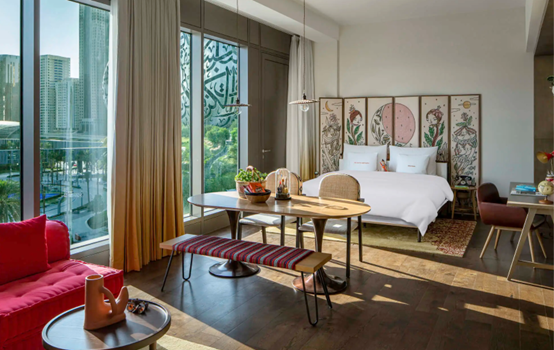
Table of Contents
ToggleWhat is a Hotel Room Layout?
A hotel room layout is the strategic distribution of all usable zones in a room or of the furniture in such quarters. Key components typically include:
- Sleeping area: The bed, night stands, and reading lights
- Work or lounge area: A desk, seating, or coffee table
- Bathroom: Typically, separate shower or tub
- Storage: Closets, drawers, or open shelves
There are a number of considerations that guide decisions on room layouts:
- Space availability: Smaller rooms mean more innovative, space-saving layouts.
- Target guest profile: Business travelers may require a dedicated space for work; leisure guests may seek areas for relaxation.
- Brand identity: Luxury firms might go with expansive, lavish layouts, while budget lodges settle on minimalism.
Common layout types include:
- Standard rooms: Sleeping and bath rooms basics
- Suites: Separate living and sleeping zones
- Studio layouts: Everything in one space, often found in studio hotels
A well-designed layout ensures smooth movement, privacy, and efficient use of space.
Optimizing Small Hotel Room Layouts
The layout of a small hotel room comes with its challenges. It can be cramped, cluttered and a question of how to store everything in the limited square footage. Unfortunately, when it comes to small rooms, that’s not easy at all, and without the right approach, they can end up feeling cramped and uncomfortable..
Common Challenges:
- No storage space: Guests need room to unpack and settle into the living space
- Inefficient circulation: Displaced furniture may chock pathways
- Visual overcrowding: Too much furniture or décor makes a room look even smaller
Space-Saving Solutions:
- Space-saving furniture: Think tables that fold, beds that fold out of the wall or ottoman beds
- Vertical storage: Use the height of the room for shelves and hanging racks
- Built-in features: Integrated headboards with storage or lighting cut down on clutter
Design Tricks:
- Light colors: Bright tones open up a room visually
- Mirrors: Reflect light and give the illusion of depth
- Strategic lighting: Layered lighting (ambient, task, accent) improves functionality and mood
Small hotel rooms can make a big design impact — without sacrificing comfort — with these tricks.
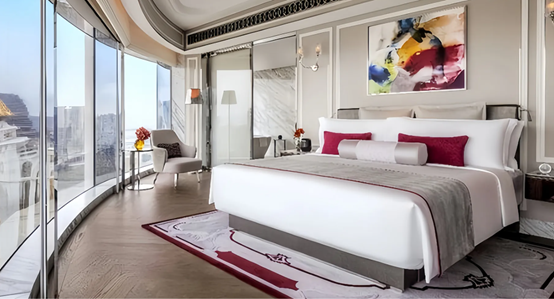
The Role of FF&E in Hotels
FF&E defines Furniture, Fixtures & Equipment—an essential segment to hospitality design which covers the whole gamut from beds to minibars. FF&E in hotel design includes every single item that is not attached to the structure of a building that is necessary to the functionality of the hotel and guest comfort. Examples include:
- Furniture: Beds, desks, chairs, sofas
- Fixtures: Lighting, curtains, bathroom vanities
- Equipment: Televisions, minibars, safes
Why is FF&E Important?
- Guest experience: Comfortable beds, quality linens, and ergonomic seating directly affect guest satisfaction
- Operational efficiency: Well-designed furniture can streamline housekeeping and maintenance
- Brand consistency: FF&E should reflect a hotel’s aesthetic and service level
- Longevity: Commercial-grade materials ensure items stand up to heavy usage
How to Choose the Right FF&E for Hotels
Selecting the right FF&E for hotels involves more than just choosing attractive furniture. It requires balancing durability, design, and practicality.
1. Durability
In a hotel, furniture will go through a higher throughput, and it will also be in constant use in every part of the hotel. Use commercial-grade FF&E that aligns with industry standards for strength, stain resistance, and wear-and-tear.
2. Aesthetics & Design
All FF&E articles should correlate to the overall interior design concept of the hotel. A boutique hotel might go for artisanal, custom pieces, while a modern business hotel will probably want minimalist, modular furniture.
3. Comfort & Functionality
Furniture needs to be beautiful and feel even more beautiful. Focus on ergonomic seating, supportive mattresses, and a layout that is intuitive and promotes ease of use of rooms for guests.
4. Sustainability
Atomic Interiors is moving toward all finished material and equipment (FF&E) for sustainably oriented hoteliers — things that involve recycled materials, low-emission finishes or certified sustainable wood. Not only is it more sustainable, but it also appeals to more mentally aware travelers.
5. Finding the Right Supplier
Choosing the right hospitality FF&E supplier is essential. Look for:
- Proven experience in hotel projects
- Customization capabilities
- Quality assurance and compliance certifications
- On-time delivery and installation support
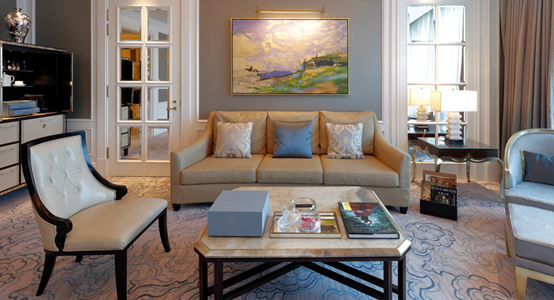
Custom Hotel Furniture by Gainwell Furniture
Gainwell Furniture is a foremost provider of custom hotel furniture that offers tailored solutions, durable materials, and innovative designs. With years of experience in the hospitality industry, Gainwell knows the unique demands of hoteliers and how to strike the right combination of style, function and affordability.
What Gainwell Offers:
- Full FF&E Bundles like beds, couches, work desks, and wardrobes
- Modified room configuration services to align with hotel brand standards and spatial needs
- Brilliant collection of stylish yet durable pieces designed to last
Gainwell’s work is visible in boutique hotels, resorts and international hospitality chains—delivering aesthetic value and dependable performance with every project.
Conclusion
The FF&E links together to define the space/function of the hotel and with a well-planned layout of the room itself, plays a pivotal role in providing the guests with a desired comfortable, nice and functional space for stay. And in your basic boutique hotel or a luxury suite, layout decisions and FF&E selections can foster or destroy the guest experience.
Well-designed, robust and brand-consistent FF&E can create a positive impact on hotel operations and contribute to guest experience. Working with a trusted supplier like Gainwell Furniture guarantees your visions become a reality, with quality and accuracy—building memories for guests in the right way in their stay.


